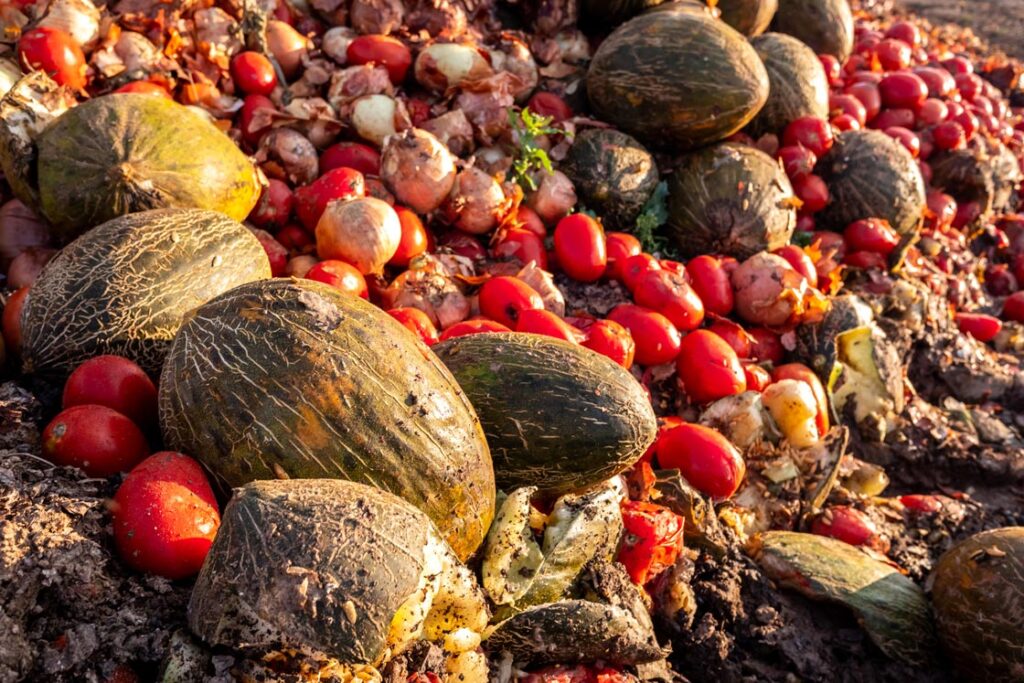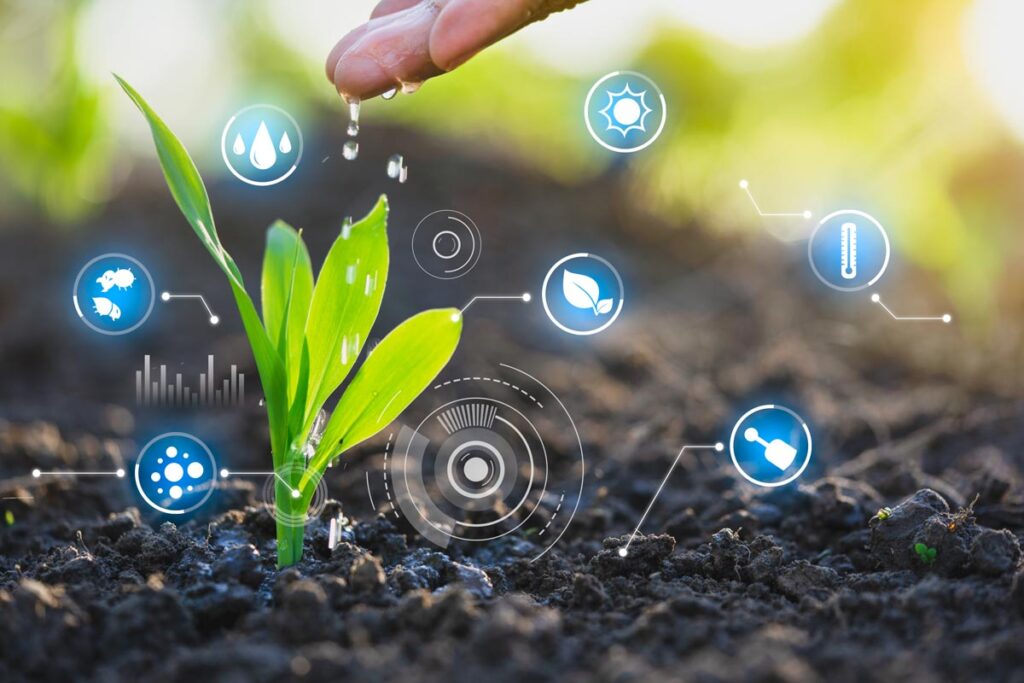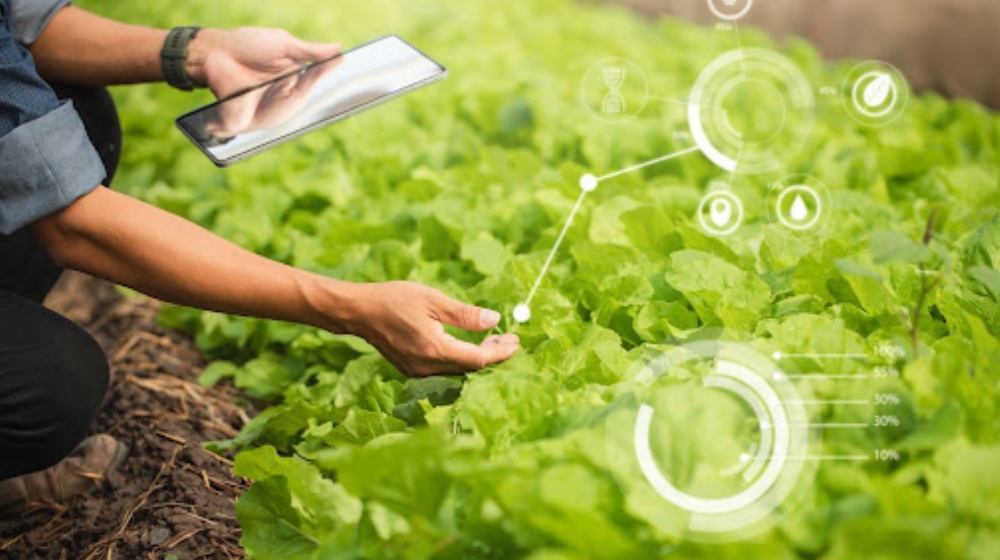The coronavirus pandemic began in early 2020; virtually every major industry has faced substantial threats to business continuity. However, few industries were hit as hard as the farming and food production sector.
Lockdowns, worker shortages, and the logistical nightmare created by ongoing supply chain issues impacted the demand and supply for food products. Naturally, this unprecedented volatility significantly affected profitability and forced the entire farming industry to reevaluate its existing supply chain management practices.
Fortunately, some good came from pandemic-related challenges. Specifically, the race to adapt to the ever-changing market has led to developing a few truly innovative digital products that can forever change the farming industry.
It is important to understand three primary challenges that the farming industry faced — and is still contending with — due to the pandemic. And, how technologies played an integral role in solving the farming industry’s key pain points helps change the discussion.
How the Pandemic Disrupted the
Farming Industry

The coronavirus pandemic was the catalyst that initiated a complex chain of global events, profoundly affecting the farming industry. However, the most disruptive consequences of the pandemic included:
Business Closures
Early in the pandemic, government entities worldwide implemented lockdown initiatives to prevent overloading the healthcare system. As part of these efforts, businesses deemed non-essential were mandated to shut their doors for extended periods. While grocers were allowed to remain open, most restaurants were not.
It caused major disruptions to the farming industry’s standard business model, as a large percentage of their products were earmarked for restaurants. It forced farmers to reroute many products to other distributors to be sent to retailers.
However, retailers could not completely absorb all of this excess supply. As a result, there was substantial food waste, and spoilage occurred. Food waste negatively impacts a farm’s profitability, which is extremely detrimental to business continuity, as many farms already operate on razor-thin margins.
Supply Chain Inefficiencies
Prior to the outbreak of COVID-19, the food industry’s supply chain had gained notoriety for its inefficiency. These inefficiencies most significantly impacted food products such as fruits, vegetables, and dairy as shipping or delivery delays often result in spoilage.
Unfortunately, supply chain issues created by the pandemic amplified the volume and frequency of food spoilage. The shortcomings in the current farm industry supply chain are particularly troublesome if a product needs to be recalled.
Due to limited shipping tracking capabilities, massive amounts of food products or beverages have to be sent back to the point of origin during a recall. It is because farms cannot accurately pinpoint which shipments are the source of food safety concerns and must ‘cast a wide net when arranging product returns.
The Great Resignation
As businesses prepared for a 2021 rebound, many farmers were optimistic that the sector would return to normalcy, mainly thanks to the widespread distribution of the COVID-19 vaccines.
However, The Great Resignation created further disruptions to an already decimated farm industry. Throughout the first part of the year, millions of Americans left their jobs to pursue better work opportunities.
In addition, many restaurants permanently closed as a direct result of the pandemic and long-term business drop-offs. It created a demand void for farmers that will likely impact the industry for years to come.
Why Technology Is Integral to
Solving the Farming Industry’s
Ongoing Challenges

No question overcoming worker shortages and the current market’s volatility will require a multifaceted approach. However, the farm industry can address one of its most glaring weaknesses by deploying leading-edge Blockchain technology.
Blockchain technology can unify the various touch points of the farm industry supply chain to create a transparent digital ecosystem. It paired with the Internet of Things (IoT) and smart devices pave the way for pinpoint food tracking and tracing. Any authorized user can access the detailed records but are immutable, which maximizes accountability among farmers, distributors, and retailers.
A combination of Blockchain solutions and IoT technologies will significantly enhance the efficiency of the farm industry supply chain. It will translate to less food waste, more efficient delivery, and better profit margins.
Blockchain and IoT will also optimize food safety with tracing capabilities that can be used to zero in on contaminated or otherwise unsafe food products so that they can be efficiently recalled.
To learn more about the advantages of Blockchain for food tracking and tracing, contact Farm to Plate. Together, we can transform the food industry by leveraging the power of modern tools.
Pramod Sajja, CEO & President at Paramount Software Solutions (farmtoplate.io), based in the USA.
